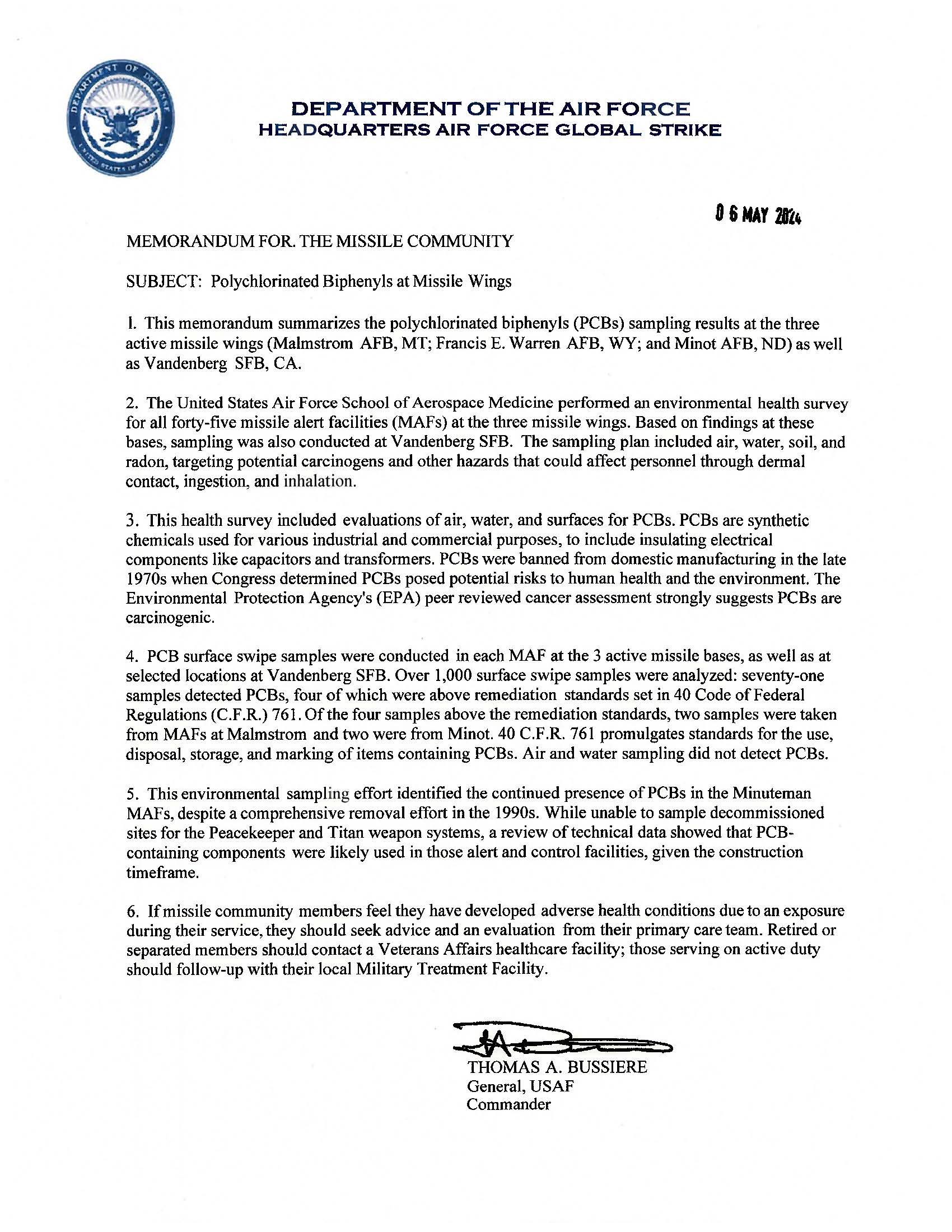BARKSDALE AIR FORCE BASE, La. -- Air Force Global Strike Command published a memorandum today signed by the commander, Gen. Thomas A. Bussiere, documenting the presence of polychlorinated biphenyls (PCBs) at missile facilities based on an environmental survey by the U.S. Air Force School of Aerospace Medicine (USAFSAM), acknowledging that PCBs were likely also present at decommissioned Peacekeeper and Titan missile facilities operated by many now-separated or retired servicemembers.
The memorandum is intended for servicemembers who served in the missile fields and need to document their potential exposure to PCBs for discussions with healthcare providers or Veterans Affairs.
The Department of Veterans Affairs provides toxic exposure screening at its facilities across the country. The PCB memorandum can help inform these screenings and discussions with healthcare providers. More information about VA toxic exposure screenings can be found at their website: https://www.va.gov/resources/the-pact-act-and-your-va-benefits/.
“One of the consistent concerns we’ve heard throughout the Missile Community Cancer Study is that servicemembers, retirees and veterans have trouble explaining their concerns over potential exposure to toxic chemicals with their healthcare providers, especially civilian providers who don’t have access to military medical databases,” said Col. Gregory Coleman, AFGSC Surgeon General. “While this memorandum from Global Strike Command cannot capture the specifics of any individual Airman or Guardian’s service in the missile fields, it can serve as a starting point for discussions and documentation of potential exposure.”
The memorandum outlines the findings of the Missile Community Cancer Study’s environmental surveys, which found traces of PCBs in surface samples at multiple Missile Alert Facilities, including four samples above the Environmental Protection Agency’s remediation levels. The memorandum notes that the PCBs persisted in low levels despite comprehensive removal efforts in the 1990s.
The memorandum also acknowledges that PCBs are likely present in decommissioned Titan and Peacekeeper missile facilities that the Air Force no longer has the ability to conduct sampling in.
“I understand the frustration and difficulty that former servicemembers can experience while trying to get care for conditions related to their military service,” said General Bussiere. “Documenting potential exposures is a small step we can take to hopefully make that process easier for our Air Force and Space Force veterans.”
The memorandum, published on the AFGSC website and the Missile Community Cancer Study website, will remain available on those websites. However, command officials recommend that Airmen and Guardians download or print a copy for their own records.

